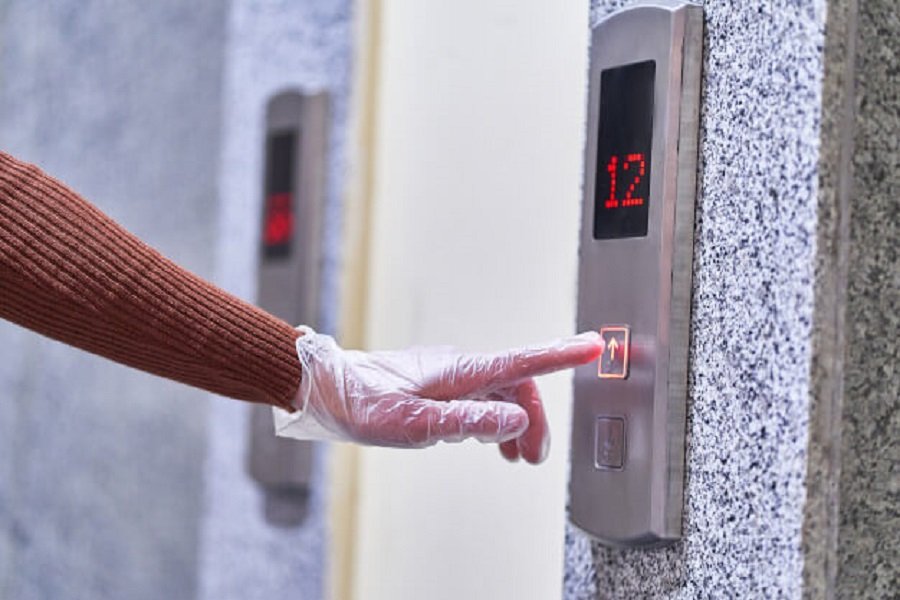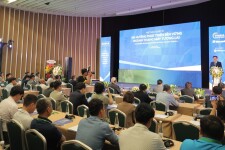As of November 3, 2021, there have been nearly 250 million cases of COVID-19 around the world with more than 5 million deaths. In Vietnam, this number is 932,357 cases, including 22,205 deaths. The epidemic continues to be complicated, with a high risk of infection in small, crowded spaces such as elevators. It is really necessary to equip bactericidal measures to prevent the risk of infection in the elevator.
Due to the narrow space characteristics, the thick contact density leads to the elevator easily becoming an environment for disease transmission. Many people even have to invent ways to not have to touch the elevator buttons such as: using toothpicks, keys, disinfectants... However, these are only temporary countermeasures and are not really guaranteed effective. Therefore, many families have chosen to use sterilization technologies in elevators.
Accordingly, disinfecting in the elevator not only eliminates the risk of COVID-19 infection but also prevents many other diseases caused by bacteria and mold. These technologies are:

This is a method of sterilization using short-wavelength ultraviolet light to kill or inactivate microorganisms. Ultraviolet light destroys nucleic acids and disrupts their DNA, rendering them unable to perform important cellular functions.
UV light is an inhospitable environment for microorganisms such as bacteria, viruses, molds and other pathogens without endangering human health. The system of UV disinfection of elevator will be set to start when the elevator is unoccupied and automatically turn off when the elevator receives a call.
This special exhaust fan will help prevent airborne viruses, allergens and odors caused by mold in the elevator cabin. Thanks to Plasmacluster technology, it generates positive hydrogen ions (H⁺) and negative oxygen ions (O₂⁻). The positive (H⁺) and negative (O₂⁻) ions of the Plasmacluster ions bind on the surface of the virus in the air and other substances and transform into the OH radical.
Being a strong oxidizing agent, OH radicals rapidly extract hydrogen (H) from surface proteins of viruses and other substances, thereby degrading proteins and inhibiting their activity. The surface of bacteria and allergens is composed mainly of proteins. Removing the hydrogen atom (H) from this structure inactivates the unwanted substance. The OH radical bonds with the removed hydrogen atom (H) to form water immediately (H₂O), which is returned to the air.
Currently, PlasmaCluster ventilation technology is also widely used in air purifiers.
It is a combination of HEPA filter with activated carbon membrane and UVGI LED that filters the air, removes unpleasant odors, inhibits organisms harmful to human health.
These modern technologies will help thoroughly handle concerns about keeping Covid virus and bacteria and viruses in elevators even if the elevator is not cleaned regularly.





